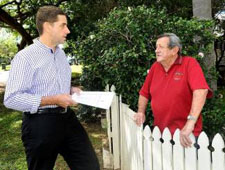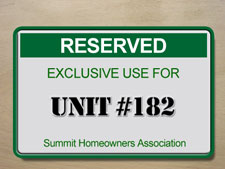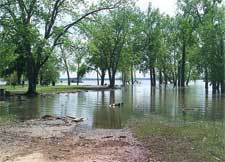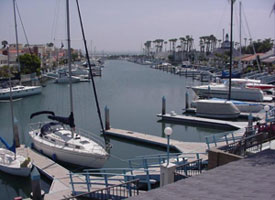 In November of last year we discussed the introduction of Senate Bill 209 (SB 209), in our post entitled, “Electric Vehicle Charging Stations in Your Community?” SB 209 as singed into law could be interpreted to broadly require that homeowners associations (Associations) allow electric vehicle (EV) charging stations on common areas–an apparent violation of existing California laws. Our blog post addressed SB 209’s various defects and deficiencies, and touched on a report by CAI’s Legislative Action Committee (“CLAC”) noting the need for an amendment to the law.
In November of last year we discussed the introduction of Senate Bill 209 (SB 209), in our post entitled, “Electric Vehicle Charging Stations in Your Community?” SB 209 as singed into law could be interpreted to broadly require that homeowners associations (Associations) allow electric vehicle (EV) charging stations on common areas–an apparent violation of existing California laws. Our blog post addressed SB 209’s various defects and deficiencies, and touched on a report by CAI’s Legislative Action Committee (“CLAC”) noting the need for an amendment to the law.
On February 29, 2012, Senate Bill 880 (SB 880) was signed into law as an “urgency statute.” SB 880, effective immediately, is a “clean up” measure intended to (1) correct constitutional flaws posed by SB 209, (2) resolve a conflict with Civil Code Section 1363.07, and (3) correct apparent ambiguities within the language of the statute.
 HOA Lawyer Blog
HOA Lawyer Blog


 One of the primary purposes of a Homeowners Association (HOA) is to manage and maintain the common areas within a development. Although the specific responsibilities assigned to a HOA may vary greatly depending on the terms of their governing documents, the HOA generally has a duty to act diligently and in good faith. Often times, these responsibilities include the repair and maintenance of security and safety equipment, including street lights,
One of the primary purposes of a Homeowners Association (HOA) is to manage and maintain the common areas within a development. Although the specific responsibilities assigned to a HOA may vary greatly depending on the terms of their governing documents, the HOA generally has a duty to act diligently and in good faith. Often times, these responsibilities include the repair and maintenance of security and safety equipment, including street lights,  Owners often question whether they can enforce their HOA’s CC&Rs on neighboring owners in the event that their HOA is either unwilling or unable to do so. Owners also question whether they can recover any attorney’s fees that they expend in bringing such an enforcement action.
Owners often question whether they can enforce their HOA’s CC&Rs on neighboring owners in the event that their HOA is either unwilling or unable to do so. Owners also question whether they can recover any attorney’s fees that they expend in bringing such an enforcement action.
 I read an interesting
I read an interesting  Several clients have recently dealt with situations requiring them to consider the feasibility of borrowing from their reserve accounts in order to satisfy various financial obligations.
Several clients have recently dealt with situations requiring them to consider the feasibility of borrowing from their reserve accounts in order to satisfy various financial obligations. Property owners in a partially-built Northern California subdivision may be compensated by the State for flooding damage to their properties.
Property owners in a partially-built Northern California subdivision may be compensated by the State for flooding damage to their properties. A recently decided case held that the
A recently decided case held that the  In
In